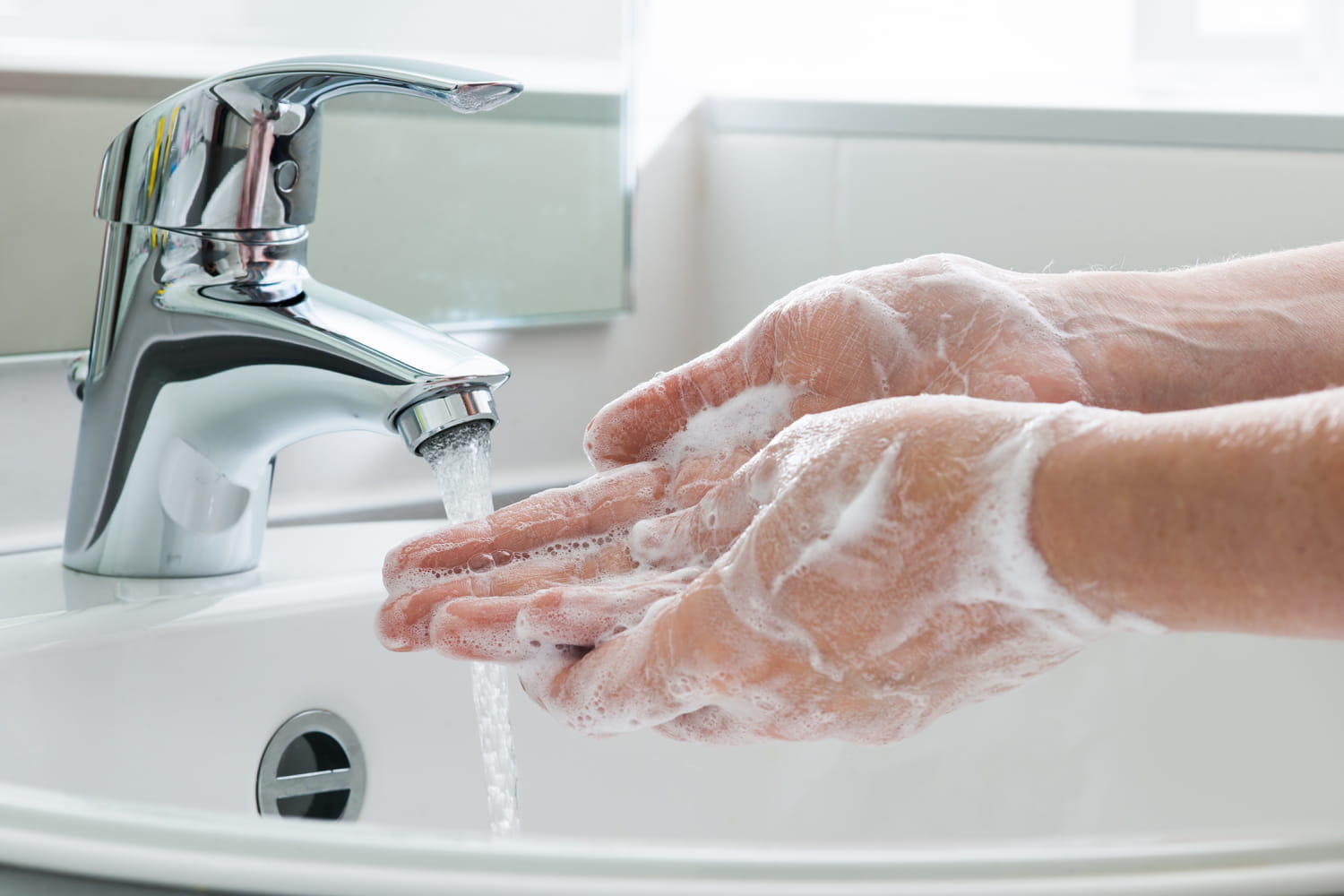Flu, Covid, bronchiolitis, gastro… Public Health France calls on the French to resume hand washing.
Good reflexes were too quickly forgotten, giving pride of place to the spread of viruses. Public Health France confirms that barrier gestures “are less and less realized” : “wearing a mask is particularly neglected (…) and 7% of people never wash their hands in risky situations.”. However, the Covid viruses but also the flu, bronchiolitis and even gastroenteritis are here at the end of 2025. It is for these reasons that Public Health France alongside the Ministry of Health and Health Insurance are broadcasting a campaign to ask the French to apply the 3 main barrier gestures: put on a mask at the first symptoms (cough, fever, runny nose), wash their hands often and correctly and ventilate the rooms regularly.
Hands are the number one contamination factor for viral infections. According to Public Health France, 80% of germs are transmitted by hands : either by direct contact, or by touching contaminated objects and surfaces then touching the eyes, nose and mouth. And for good reason: throughout the day, our hands are in contact with objects potentially contaminated by viruses or bacteria. How often to wash them to kill germs?
“It’s mostly common sense. You should wash your hands when you have been in contact with a potentially contaminated object or person.answers Dr Sylvain Bouquet, general practitioner, member of the College of General Medicine. In other words, it is necessary to wash your hands every time you have done something potentially dirty and infectious.” For example, when arriving at the office, returning home, exiting public transport, after touching doors, elevator buttons, returning from the park, after blowing your nose or coughing, before preparing food and of course after going to the toilet. “This last point may seem obvious, but not everyone does it.“, adds the general practitioner.
Technique is also essential. The best way to wash your hands is to use soap and water, then rub your hands palm to palm, then the back of your hand using the opposite hand. It is crucial not to forget the space between fingers and nails. “Also remove your rings because the bottom is a real nest of microbes“warns Dr Bouquet. To be effective, hand washing must last at least 30 seconds.
Washing your hands regularly and thoroughly remains our best defense against the spread of viral infections, particularly in the current context where viruses are actively circulating. Adopting this simple cleanliness habit can significantly reduce the risk of disease and protect our health and that of those around us. It is therefore crucial to remember this simple but powerful gesture, especially after coming into contact with potentially contaminated surfaces.









